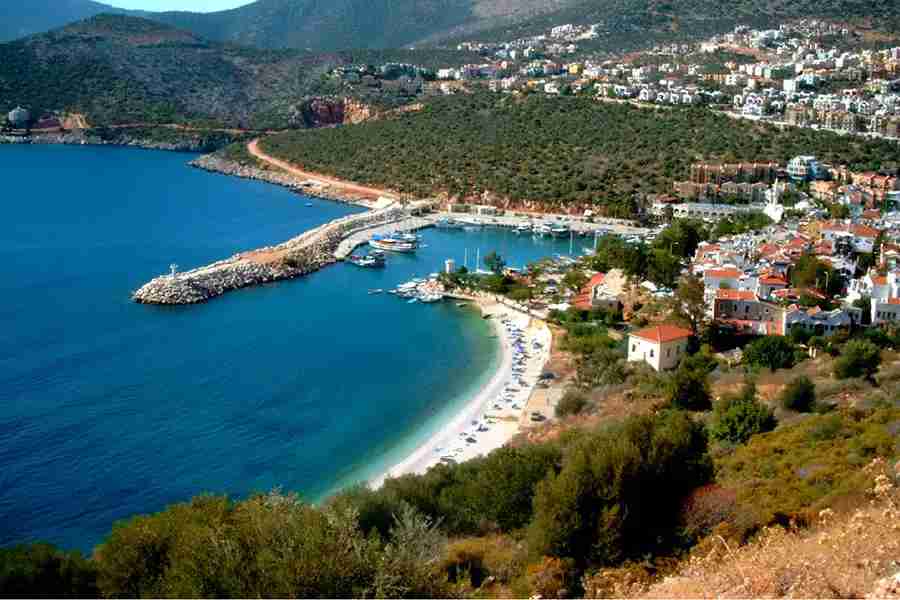Turkey, with its rich cultural heritage, stunning landscapes, and vibrant cities, has long been a sought-after destination for travelers. Recently, the country has experienced a significant tourism boom, which is not only enhancing its global profile but also reshaping the real estate investment landscape.
As the tourism sector flourishes, it presents a multitude of opportunities for investors in Turkey’s real estate market. Here’s a closer look at how this tourism surge is creating new prospects for real estate investments.
The Synergy Between Tourism and Real Estate
Tourism and real estate are inherently linked, as the influx of visitors often drives demand for various types of properties. In Turkey, this relationship has become increasingly pronounced. The rise in tourist arrivals has led to a growing demand for short-term rental properties, hotels, and commercial spaces. Investors are keen to capitalize on this trend by acquiring properties that cater to the needs of tourists, from boutique hotels to vacation rentals.
1. Increased Demand for Short-Term Rentals
One of the most direct impacts of Turkey’s tourism boom on real estate is the surge in demand for short-term rental properties. Cities like Istanbul, Antalya, and Bodrum have seen a significant rise in visitors seeking short-term accommodations. This trend has spurred investors to explore opportunities in the short-term rental market, where properties are rented out for brief periods, often to tourists.
Investors in Turkey are increasingly targeting properties in prime tourist areas, such as historic districts and coastal resorts, to cater to this growing demand. By investing in properties suitable for short-term rentals, investors can potentially achieve higher rental yields compared to traditional long-term leases.
2. Development of Hospitality Real Estate
The booming tourism industry has also stimulated the development of hospitality real estate. Turkey’s luxury and boutique hotel sectors are expanding rapidly to accommodate the influx of high-end tourists. Investors are now focusing on acquiring or developing hotel properties to tap into this lucrative market segment.
Investing in hospitality real estate offers several advantages, including the potential for strong rental income and asset appreciation. With Turkey’s tourism sector projected to continue growing, hotels and resorts are expected to remain in high demand, making them attractive investment options.
3. Revitalization of Urban and Coastal Areas
Tourism growth has led to the revitalization of various urban and coastal areas in Turkey. Cities that were once off the beaten path are now gaining popularity among tourists and investors alike. This urban renewal often results in increased property values and development opportunities.
For example, neighborhoods in Istanbul that were previously less sought after are now experiencing a renaissance due to their proximity to tourist attractions and newly developed amenities.
Similarly, coastal towns and resorts are seeing new real estate projects that cater to both tourists and residents. Investors are taking advantage of these revitalized areas to acquire properties that promise substantial returns as demand increases.
The Impact on Real Estate Investment Strategies
As Turkey’s tourism sector continues to grow, real estate investment strategies are evolving to align with emerging trends. Investors are now focusing on several key areas:
1. Mixed-Use Developments
Mixed-use developments, which combine residential, commercial, and hospitality spaces, are becoming increasingly popular. These projects cater to tourists, residents, and businesses, providing a comprehensive solution that meets diverse needs. Investors are attracted to mixed-use developments due to their potential for steady rental income and high occupancy rates.
2. Sustainable and Eco-Friendly Properties
With rising environmental awareness among travelers, there is a growing demand for sustainable and eco-friendly properties. Investors are responding by incorporating green building practices and energy-efficient technologies into their projects. These properties not only appeal to environmentally conscious tourists but also offer long-term cost savings and sustainability benefits.
3. Luxury and High-End Real Estate
Turkey’s tourism boom has also fueled demand for luxury real estate. High-net-worth individuals and international investors are seeking upscale properties with premium amenities. This trend is particularly evident in major cities and exclusive coastal regions. Investors are capitalizing on this demand by developing or acquiring luxury properties that cater to affluent tourists and residents.
Looking Ahead: Future Opportunities
The future of Turkey real estate investment looks promising, driven by the country’s robust tourism sector. As Turkey continues to attract visitors from around the globe, the demand for diverse real estate options is expected to rise. Investors who are strategically positioned to leverage this growth can benefit from lucrative opportunities in short-term rentals, hospitality, and mixed-use developments.
Moreover, with ongoing infrastructure improvements and government initiatives to boost tourism, the potential for real estate investment in Turkey is set to expand further.
By staying informed about market trends and aligning investment strategies with the evolving tourism landscape, investors can capitalize on Turkey’s tourism boom and achieve significant returns.
In conclusion, Turkey’s tourism boom is reshaping the real estate investment landscape by driving demand for short-term rentals, hospitality properties, and revitalized urban areas. Investors who recognize and act on these opportunities can benefit from the growing synergy between tourism and real estate. As the tourism sector continues to flourish, Turkey remains a vibrant and promising market for real estate investment.
.webp&w=3840&q=100)
















